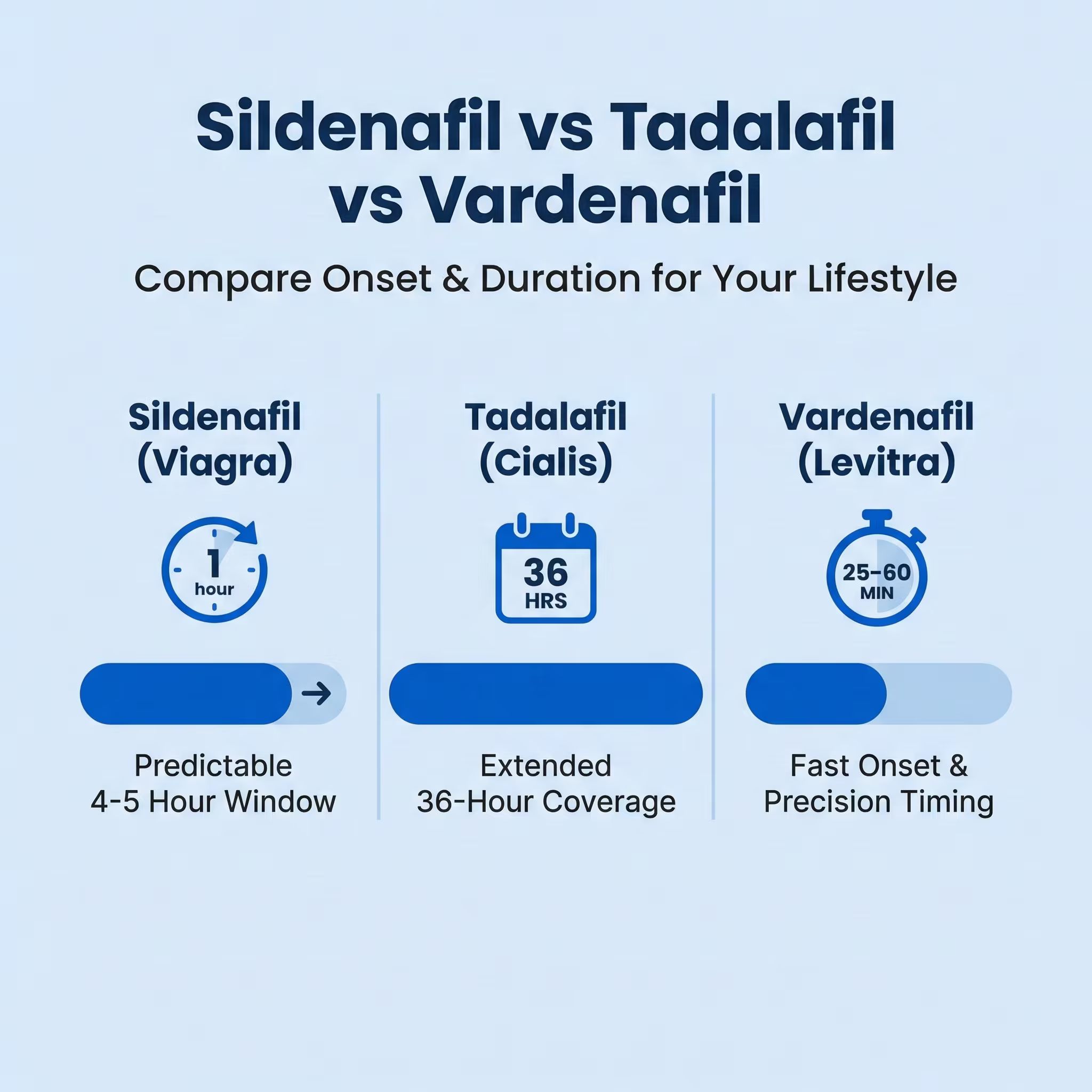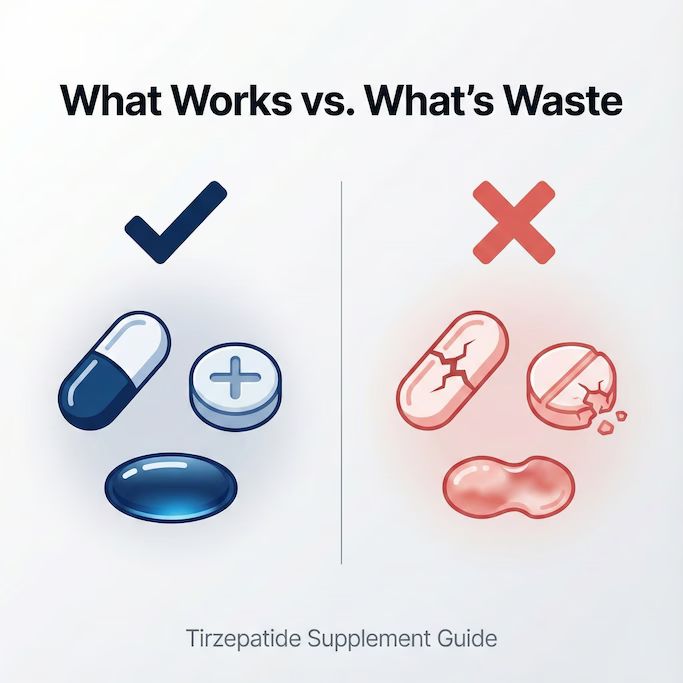Introduction
According to the Cleveland Clinic, around 1 in 3 adults worldwide have insomnia symptoms and about 10% meet the criteria for an insomnia disorder. Though women struggle with sleep problems more often than men, men are less likely to seek help for their symptoms, thereby increasing their risk of depression, obesity, type 2 diabetes, cardiovascular issues, and poor cognitive function.
Ramelteon is an FDA-approved sleeping medication with no serious side effects. It is only available with a prescription and typically works within 30 minutes to help you fall asleep. Though there are a variety of sleep solutions on the market, including those deemed “natural” like melatonin, ramelteon has been found to be more effective and in some cases, safer, than similar products of its kind.
Read on to learn more about using ramelteon for insomnia and find out how it compares to other sleep medications and supplements.
Key takeaways:
- Ramelteon is an FDA-approved sleeping medication with no serious side effects. It is only available by prescription.
- Studies indicate that ramelteon is more effective than melatonin in reducing sleep onset latency and increasing total sleep duration, especially deep sleep.
- Compared to other prescription sleeping medications like Ambien and Lunesta, ramelteon is just as effective, but it will not cause dependency or next-day drowsiness.
What is ramelteon?
Ramelteon, commonly sold under the brand name Rozerem®, is a medication that helps you fall asleep and stay asleep. It was the first melatonin-receptor agonist approved in the United States for the treatment of insomnia. It works by mimicking the activity of melatonin, a hormone produced by your brain in response to darkness. This helps to regulate your sleep-wake cycle, or circadian rhythm.
In this six month study on the safety and efficacy of ramelteon, the medication significantly reduced sleep onset latency relative to placebo without any residual effects the next morning. Even more, when subjects stopped taking the drug, they experienced no withdrawal effects or rebound insomnia.
Ramelteon is absorbed rapidly, reaching peak concentration in less than one hour. In a study of adults with obstructive sleep apnea, ramelteon treatment was associated with a statistically significant difference of 28.5 minutes in sleep onset latency in comparison to placebo.
How does ramelteon work?
As a melatonin-receptor agonist, ramelteon binds to the MT1 and MT2 melatonin receptors in a part of the brain called the body’s “master clock.” When the melatonin receptors are activated, they inhibit an enzyme called adenylyl cyclase. This leads to a decrease in cyclic adenosine monophosphate (cAMP), a molecule linked to stress and wakefulness. In addition to reducing sleep onset latency and the percentage of time spent awake, ramelteon increases slow wave sleep and REM sleep, the deepest stages of sleep.
Ramelteon is able to achieve these sedating effects without impacting the usual targets of sleeping medications, anti-anxiety medications, and other hypnotics, including monoamine receptors, opioid receptors, central benzodiazepine receptors, and dopamine transporters. This may be why users do not experience dependency or withdrawal effects with this drug.
Ramelteon side effects
Ramelteon is associated with few side effects. In clinical trials, the most frequent adverse events leading to discontinuation of treatment were drowsiness, dizziness, nausea, and headache; all of which occurred in just 1% of the patients or less.
As far as contraindications, ramelteon should not be used by patients taking fluvoxamine, which may inhibit its metabolism, or by patients who have severe hepatic impairment. It is also advised to avoid ramelteon when taking ketoconazole or fluconazole, because these drugs increase blood levels of ramelteon, which contributes to a higher risk of side effects.
Does ramelteon cause weight gain?
Some sleeping drugs, like Ambien®, may cause weight gain. In the case of Ambien, some users have reported compulsively eating during the night while sleepwalking and not remembering the next day. But ramelteon is not associated with weight gain. In fact, some research shows that ramelteon may actually decrease weight, potentially due to its hypotensive action.
Ramelteon vs melatonin
Is ramelteon better than melatonin? According to research from 2015, it’s about 17 times better. In one animal study comparing ramelteon to melatonin, ramelteon displayed significantly shortened sleep onset latency and increased total sleep duration, while melatonin had a weaker effect on sleep latency and no effect on sleep duration.
Like ramelteon, the most common side effects of melatonin include headaches, nausea and dizziness. But studies indicate melatonin may also induce hypothermia in users and cause plasma melatonin to remain elevated into the daylight hours. This may explain the rebound or “hangover” effect users report. Even more, research from France published in 2016 found 200 side effects associated with the use of melatonin, of which 43% were neurological disorders, 24% were psychiatric disorders, 19% were skin disorders, and 19% were digestive problems.
Ramelteon is also approved by the FDA, whereas supplements like exogenous melatonin are not. According to the National Center for Complementary and Integrative Health, some melatonin supplements may not contain what’s listed on the product label. They point to a 2017 study that tested 31 different melatonin supplements bought from grocery stores and pharmacies, only to find the amount of melatonin in the product didn’t match what was listed on the product label. They also add that 26% of the supplements contained serotonin, a hormone that can have harmful effects if combined with other drugs.
Ramelteon vs Ambien®
Unlike ramelteon (zolpidem), which works primarily on melatonin receptors to regulate the sleep-wake cycle, Ambien acts more like a benzodiazepine; it binds to GABA receptors to induce sleepiness. Studies comparing ramelteon to zolpidem found the former to be superior in reducing sleep onset latency and increasing total sleep duration. Zolpidem, on the other hand, had no effect on the latency to light sleep or slow wave sleep, nor on total sleep time. Other studies have found that zolpidem actually reduces deep REM sleep in some users.
Aside from the sleepwalking and sleep eating mentioned above, Ambien is also associated with a number of other side effects, and they are considered very common. Dizziness occurs in up to 23.5% of users, headache occurs in up to 19%, and 1 to 10% of users experience symptoms like amnesia, lack of coordination, daytime drowsiness, involuntary muscle contractions, numbness, and vertigo. Ambien is also a federally controlled substance and considered habit-forming, so it should only be taken short-term, while ramelteon can be used for longer insomnia treatment.
Ramelteon vs Lunesta®
Lunesta (eszopiclone) works much like Ambien in binding to GABA receptors to induce sleepiness. But Lunesta is often considered more potent than Ambien because it has a longer half-life. This means that users tend to sleep longer when taking Lunesta. This longer half-life also means that Lunesta causes next-day drowsiness and a number of other lingering side effects.
The most common side effects of Lunesta include an unpleasant taste in the mouth, which occurs in 26% of users, infections (colds) in 16%, nausea in 11%, dizziness in 10%, and next-day drowsiness in 9%. Also like Ambien, Lunesta is also considered habit-forming and is designed for short-term use. And unlike ramelteon, Lunesta is known to cause rebound insomnia when you stop taking it.
Ramelteon dosage
The starting dosage of ramelteon is 8 mg and it should be taken around 30 minutes before bed. You may find that the medication is more expensive than generic versions of other sleeping drugs and supplements, but if you are looking for a long-term solution with fewer side effects, we think it’s a small price to pay.
Disclaimer: The contents of this article, including, but not limited to, text, graphics, images, and other information, is for information purposes only and does not constitute medical advice. The information contained herein is not a substitute for and should never be relied upon for professional medical advice. The content is not meant to be complete or exhaustive or to be applicable to any specific individual's medical condition. You should consult a licensed healthcare professional before starting any health protocol and seek the advice of your physician or other medical professional if you have questions or concerns about a medical condition. Always talk to your doctor about the risks and benefits of any treatment. Never disregard or delay seeking professional medical advice or treatment because of something you have read on this site. Maximus does not recommend, endorse, or make any representation about the efficacy, appropriateness, or suitability of any specific test, products, procedures, treatments, services, opinions, healthcare providers or other information contained herein. Maximus is not responsible for, nor will they bear any liability for, the content provided herein or any actions or outcomes resulting from or related to its use.










